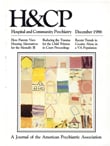The Child as a Witness
Abstract
The increasing participation of children in judicial proceedings raises two central issues: the competency of the child as a witness and the effects on the child of testifying about a traumatic experience. After discussing these issues, the authors present the recommendations of forensic child psychiatrists on bow to improve the judicial process to elicit more accurate testimony from child witnesses—for example, by videotapinga child's testimony to avoid repeated interrogations, using anatomically correct dolls and pictures to allow the child to recount events through displacement, and using one skilled interviewer throughout the proceeding to allow rapport to develop between interviewer and child. They then discuss the role of the child psychiatrist in court proceedings involving child witnesses.
Access content
To read the fulltext, please use one of the options below to sign in or purchase access.- Personal login
- Institutional Login
- Sign in via OpenAthens
- Register for access
-
Please login/register if you wish to pair your device and check access availability.
Not a subscriber?
PsychiatryOnline subscription options offer access to the DSM-5 library, books, journals, CME, and patient resources. This all-in-one virtual library provides psychiatrists and mental health professionals with key resources for diagnosis, treatment, research, and professional development.
Need more help? PsychiatryOnline Customer Service may be reached by emailing [email protected] or by calling 800-368-5777 (in the U.S.) or 703-907-7322 (outside the U.S.).



